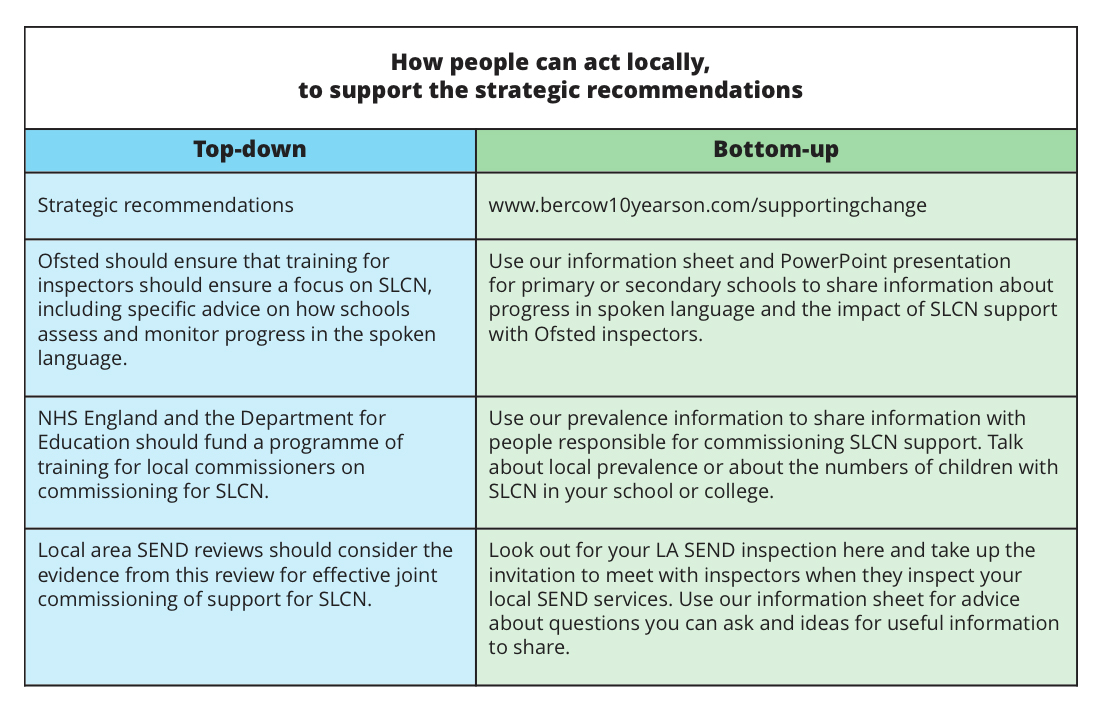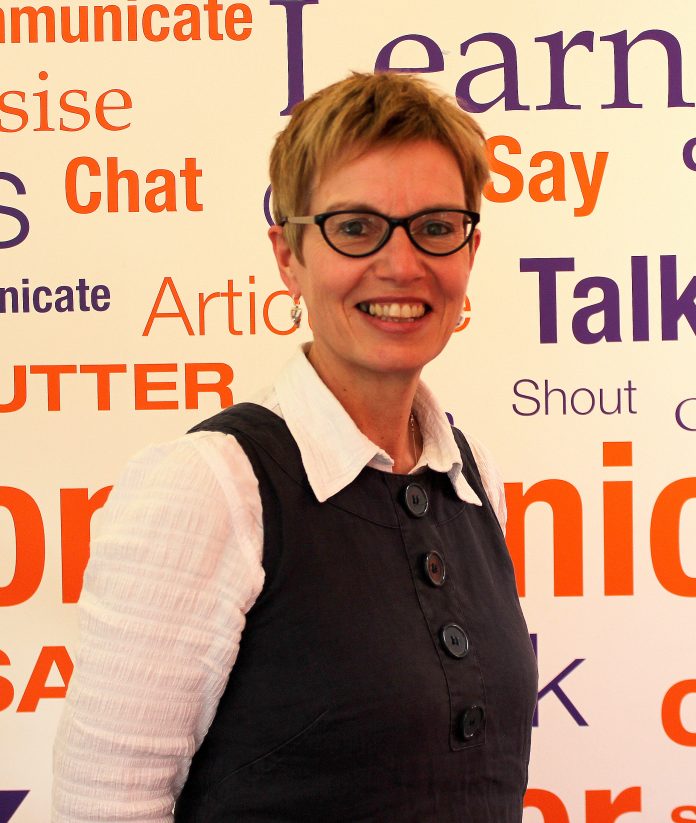Mary Hartshorne, I CAN’s Head of Evidence shares her thoughts on the report Bercow: Ten Years On and the next steps for children and young people with speech, language and communication needs
Many reports are criticised as spending too much time admiring a problem and not enough time doing something about it. In March 2018, I CAN, the children’s communication charity and the Royal College of Speech and Language Therapists (RCSLT) launched the Bercow: Ten Years On report, an independent review of provision for children and young people with speech, language and communication needs (SLCN) in England. The report found a fractured system failing thousands of children and young people by not identifying their needs early enough or providing adequate levels of support.
It’s not a new problem. So, if we’ve all been guilty of ‘admiring the problem’ before, now is really the time for action.
Action is needed because the findings of this report matter. They matter for the two or three children in every classroom who have developmental language disorder (DLD): a condition where children have problems understanding and/or using spoken language, but where there is no obvious reason for these difficulties – no hearing problem or physical disability that explains them. Around half of these children go unnoticed in primary schools and because good language skills underpin the ability to learn to read, to learn and to develop socially and emotionally, this can have a drastic impact. We have the evidence for this: just 15% of pupils DLD achieved the expected standard in reading, writing and mathematics at the end of primary school compared with 61% of all pupils, likewise only 20% of pupils with DLD gained grade 4/C or above in English and maths at GCSE, compared with 63.9% of all pupils. There is also a much higher risk of mental health issues in children and young people with DLD, increased risk of behaviour difficulties and language difficulties are highly prevalent in the youth offending population. But this does not have to be the case, with the right support; children with DLD can do well academically, socially and emotionally.
In taking action, thousands of children and young people with DLD will get this support. To, ensure that the report will not just stay on the shelf, quickly becoming out-of-date as governments come and go; there is both a ‘top-down’ and ‘bottom-up’ approach to change.
From the top, strategic recommendations demand change from national and local leadership. The report asks for systemic change, which considers the importance of speech, language and communication in children and young people’s development and asks for SLCN to be embedded within government policies. So, for example, where the government is taking steps to change mental health provision, this should recognise the link with SLCN; current plans for reforming early career support for newly qualified teachers should include training in SLCN; commissioners of SLCN services need to understand about effective ways of supporting children and young people with SLCN.
The bottom-up approach draws from the evidence presented to the review. As well as challenges and issues, the review also found many examples of innovative, effective practice. Based on these, a series of calls to action encourages everyone to take bold first steps to make change happen: school staff, early years practitioners, speech and language therapists, parents and young people themselves. Accompanying the report is a website www.bercow10yearson.com/supporting-change, which is full of practical resources: information sheets, top tips, email templates, presentations and guidance to support people in doing this.
As far as possible, the calls to action support recommendations both top-down and bottom-up – here are just a few examples of how this works:

I CAN and RCSLT have committed to reporting on progress one year on; in the meantime, there are things that you can do. You can sign a petition asking for the government to respond to the review at https://petition.parliament.uk/petitions/215643.
Visit www.bercow10yearson.com/supportingchange and find out how you can act and watch out for the progress report in 2019.
Mary Hartshorne
Head of Evidence
I CAN
Tel: +44 (0)20 7843 2510
Twitter: @ICANcharity











